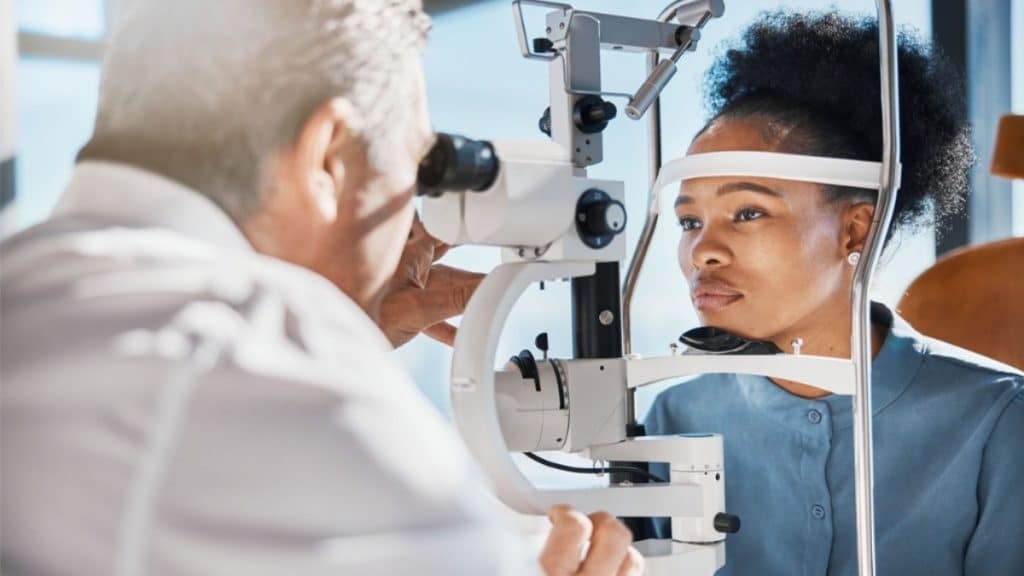When it comes to eye care, navigating the world of specialists can feel overwhelming. This is because many people tend to be unsure which professional to consult for specific concerns, leading to confusion and potentially delayed treatment. As a matter of fact, while ophthalmologists, optometrists, and opticians all play crucial roles in supporting eye health, their expertise and scope of practice differ significantly.
Understanding these distinctions is essential for making informed decisions about your eye care. Whether you’re seeking routine eye exams, treatment for eye conditions, or assistance with vision correction, knowing which specialist to turn to can ensure you receive the most appropriate and effective care.
Ophthalmologists: Medical Doctor for Eye Health
An ophthalmologist is a medical doctor (MD) specializing in eye health. These professionals undergo extensive training, including years of medical school. Ophthalmologists are supposed to be able to diagnose a range of eye conditions, prescribe medicines and eyeglasses or contact lenses, and perform eye surgeries.
As doctors, ophthalmologists are also trained in recognizing how other health conditions, such as diabetes or hypertension, might impact eye health. For those experiencing unusual symptoms like severe eye pain, persistent vision changes, or sudden flashes of light, seeking advice from an ophthalmologist can help clarify underlying causes and identify management options.
Optometrists: First Point of Contact for Eye Health
Optometrists are typically the first point of contact for routine eye care. After completing a Doctor of Optometry (OD) program, optometrists are equipped to assess vision, prescribe corrective lenses, and detect potential eye issues that may require further examination. They can also help people manage common visual challenges such as nearsightedness, farsightedness, and astigmatism, recommending corrective measures to improve everyday vision quality.
It’s important to note that while optometrists provide comprehensive eye care, they are not medical doctors. They are healthcare professionals with specialized training in vision and eye health.
Optometrists also perform various vision screenings and examinations to help detect early signs of eye conditions. For instance, a regular eye test could help reveal issues like early-stage glaucoma or macular degeneration, prompting timely care to minimize the risk of progression. While optometrists do not perform surgical procedures, they are adept at advising patients on managing the effects of vision challenges and recommending further care if necessary.
Opticians: Professionals in Vision Accessories and Eyewear
Opticians work alongside optometrists and ophthalmologists, focusing on providing and fitting eyewear. After training in interpreting prescriptions and using specialized equipment, they help patients select and fit eyeglasses, contact lenses, and other visual aids.
Opticians are categorized into three groups based on their qualifications.
- Opticians (Dispensing Only): These opticians are trained to dispense and fit glasses based on prescriptions.
- Opticians (Refraction and Dispensing): In addition to dispensing and fitting glasses, they can perform refraction on patients aged 8 and older to correct vision issues like short-sightedness, long-sightedness, and astigmatism.
- Opticians (Contact Lens Practice): These opticians can perform refraction, dispense and fit both glasses and contact lenses and provide aftercare to monitor and manage potential contact lens-related issues.
While they don’t diagnose or manage eye conditions, opticians ensure that corrective lenses align with prescribed needs, offering guidance on frame styles, lens materials, and coatings for visual comfort and aesthetics.
When to Consult an Ophthalmologist, Optometrist, or Optician
Navigating the world of eye care can sometimes feel confusing. Who should you see for a routine check-up? Where do you go if you have a specific eye concern? If you’re still unsure about where to start, here’s a quick guide on when to see each type of eye care provider:
- Routine eye check-ups and vision corrections: An optometrist is your go-to choice for regular eye exams, vision screenings, and prescriptions for corrective lenses.
- Comprehensive eye assessments for health conditions: If you have more serious eye concerns or a medical condition affecting your eyes, an ophthalmologist might be able to assist you in finding the appropriate treatment.
- Eyewear fittings and lens adjustments: For assistance in choosing and fitting eyeglasses or contact lenses, an optician should be able to help you find the right visual aids that suit your prescription and lifestyle needs.
Once you have a clear understanding of which professional to consult for your eye concerns, you can take the necessary steps to ensure your eye health by visiting the appropriate eye care specialist.
Why Knowing the Difference Matters
Understanding the differences between ophthalmologists, optometrists, and opticians can help you make informed decisions about your eye care. Choosing the right eye care provider is important not only for vision correction but also for maintaining proactive eye health. Whether you’re experiencing changes in your vision or simply need routine care, knowing which specialist to consult can help preserve your eye health and prevent potential issues from worsening. Therefore, always seek professional advice from eye care experts like those at EyeWise Vision to ensure your concerns are properly addressed.

